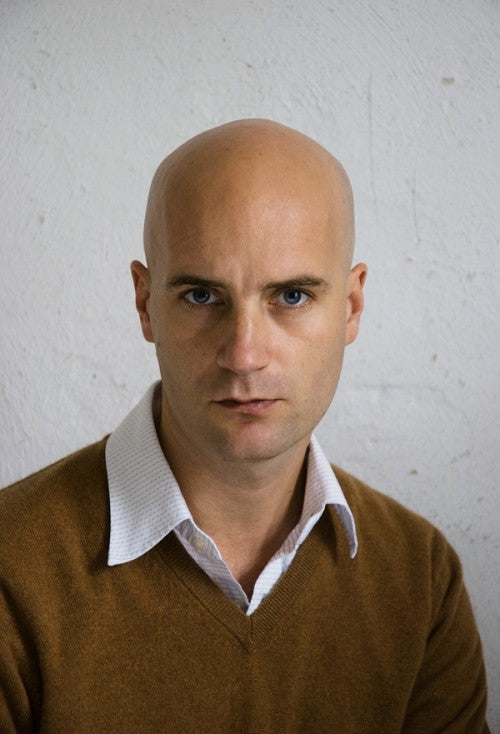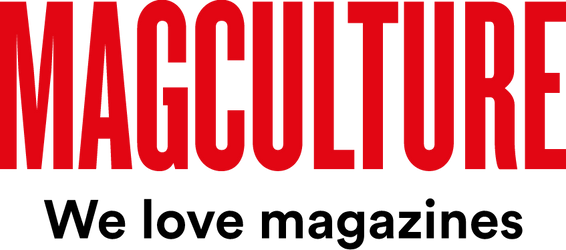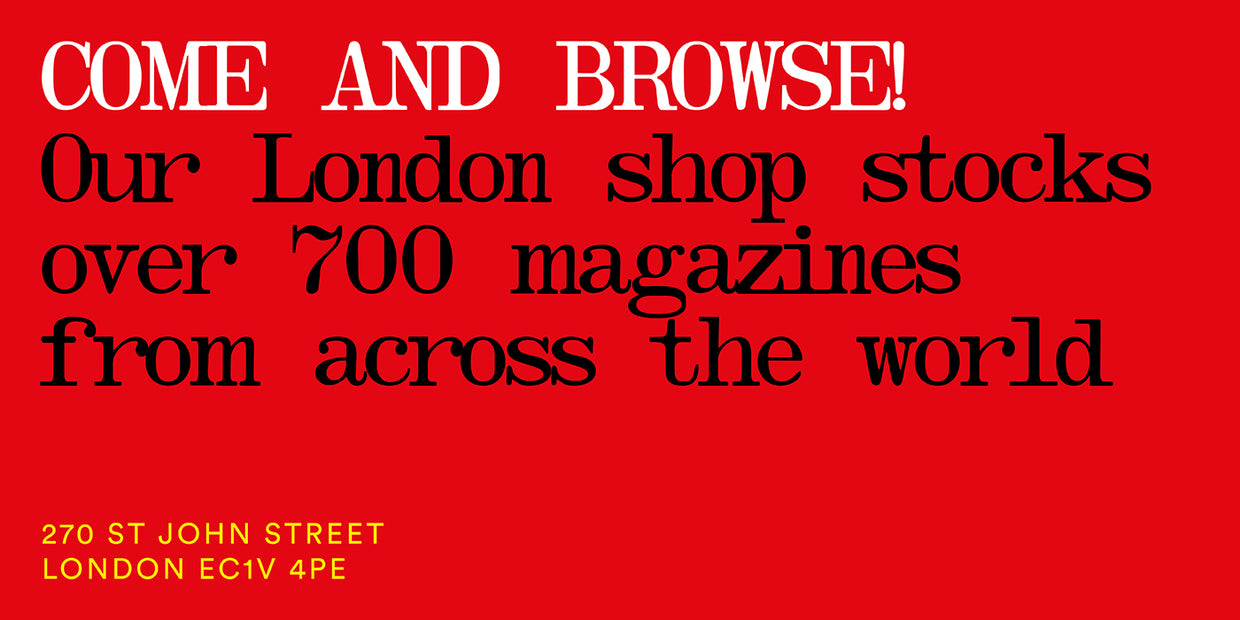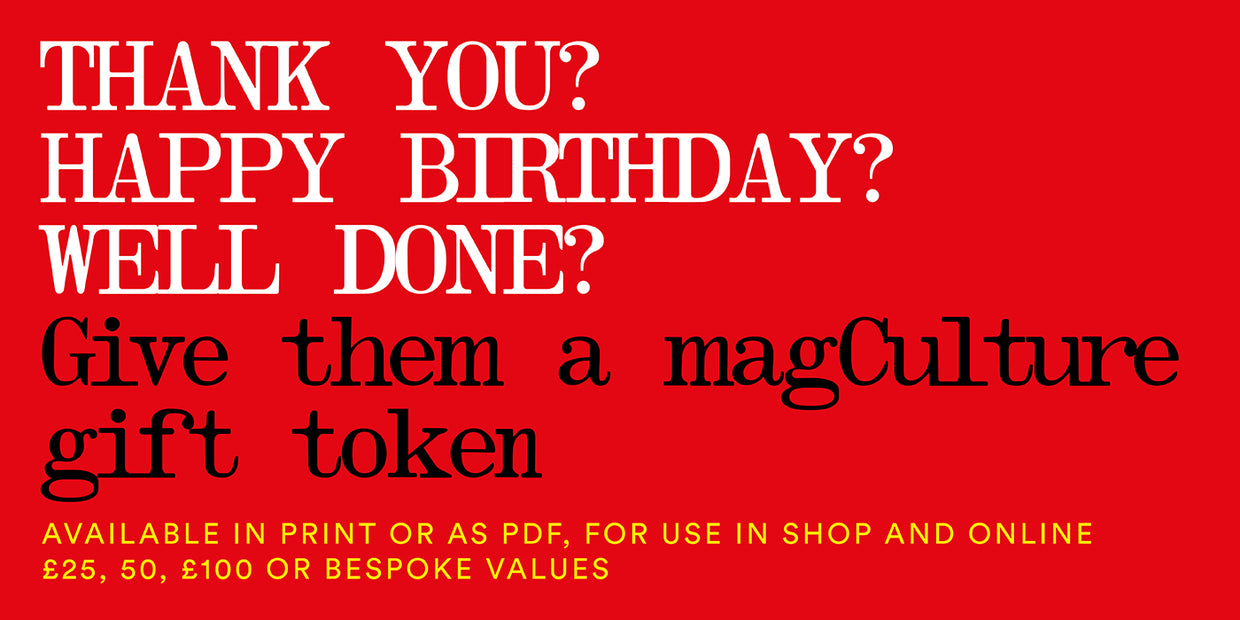
At Work With: Kai von Rabenau, mono.kultur

We start the new week with art director and photographer Kai von Rabenau. After studying graphics in London at Central St. Martins, Kai moved back to Berlin and founded independent interview magazine mono.kultur. Every issue is given over to a single interview with one artist. Ten years later, we join him as the 37th edition of mono.kultur is about to be published, the long-planned James Nachtwey issue.

Cover of mono.kultur #37 James Nachtwey
Where are you today?
I’ve just arrived at our lovely studio in Berlin’s impossibly hip Kreuzberg district. It wasn’t like that when we moved here, but somehow hipness seems to follow our steps.

What can you see from the window?
We look onto a typical Berlin industrial backyard; the city has a peculiar structure of buildings organised around courtyards, many of which used to house industrial workshops. Obviously, these days many of them have been replaced by studios, even though we still have a carpenter downstairs, so we are greeted by the smell of wood in the staircase every morning, which I love.
Are you a morning or evening person?
Most definitely evening – it takes me forever to wake up and get going in the mornings. I also enjoy working at the studio in the evening, when there are less distractions. These are my most productive and valuable hours to work on things that take concentration and quiet. It’s also the only time I can test the limits of our stereo, which helps me focus.
What’s your favourite magazine this morning?
I usually read Germany’s weekly newspaper Die Zeit in the mornings, and it takes me about a week to work my way through it. But I also adore this time of the year, when a lot of the biannuals come out, such as 032c, Fantastic Man or even good old Purple. Other than that, German economy magazine brand eins is a fixture, and US Interview is a regular source of glossy entertainment.
Why do you think Berlin has established itself as something of a centre of independent magazine publishing?
Germany has a long history of high quality newspapers and magazines, so we grew up with that: I read the same newspaper that my parents used to read when I was little. There is also a great love for printed matter here – Germany is, for example, oddly resistant to e-books in international comparison. As for Berlin, I guess it’s for the obvious reasons: it’s still relatively cheap to live, there is a lot of space and a lot of very talented people have moved here for exactly those reasons.
Most of all, the financial pressure is not as crushing as in London or New York, so it’s still possible to nurture independent projects such as mono.kultur without necessarily having to turn them into money, and that brings a certain freedom. Berlin has often been called a creative laboratory, and even though things are constantly changing, it’s still true to a certain extent, and that also applies to magazines. I often feel that Berlin offers a little more of that most precious commodity of all, which is time.
And then, there is of course a fantastic infrastructure of stores, such as Motto, Do You Read Me?! or Pro QM, which helped establish a sort of scene, in the loosest sense.
The concept for your magazine is very simple, yet the substantial editorial board listed in the credits implies something else. Talk us through the process of deciding who to feature.
Yes, that’s true, but the long list of editors might be a little misleading – actually, none of us works fulltime on mono.kultur. I probably come closest in terms of time, but will have several other design and photography projects going at any given moment. As for the selection process, that’s a continuous and organic development. We have a very long wish list of artists we would like to feature, which is constantly being discussed and questioned and amended.
The rest depends a little on specific criteria, such as genre, gender, can he/she carry whole issue, etc., as well as gut feeling, and how excited we get about any particular contender. But it also depends on who we can convince to participate – for a niche publication like mono.kultur, we actually ask for a lot of time and input from the artists we feature, since we try and treat every issue as a collaboration. Sometimes, that can go very quickly, but more often than not, it will be a lengthy process.
For instance, with our upcoming issue with war photographer James Nachtwey, I just double-checked: I first wrote to him in April 2012 asking for an interview. So it’s taken us 2.5 years to make this happen and bring it to a level that us and Nachtwey were happy with. As it happens, in the meantime we have been seeing a new dimension of terror develop with the IS, and the beheadings of journalists James Foley and Steven Sotloff have drawn worldwide attention to the work of journalists.
So by pure coincidence, our interview with James Nachtwey is coming out at a moment where it has acquired a whole new meaning and relevance.

Do you ever long to break out of the A5 page size you've adopted?
Rarely, but yes, sometimes. All in all, we love the size of mono.kultur, and we think it’s perfect for the content it offers. Commercially it’s not so clever, to be honest, and we’ve often been asked by bookshops to change the format, since it’s inconvenient for stores; but we could not really bring ourselves to compromise on the size.
Having said that, our artist publication with Robert Montgomery came about precisely because we felt the small format wouldn’t do justice to the scale of his works; I just really wanted to see them reproduced as large as possible. So we went into the opposite direction and printed them as an A1 publication (the two compared, above). It has a mind-blowing effect visually that we could have never achieved with mono.kultur, even though you lose the practicality of a small format, and in terms of logistics, it was a nightmare to produce. In the end, it always comes down to the question what makes sense; and in our case, offering just one interview and one artist per issue, small is simply perfect.

You're about to launch issue 37 of mono.kultur. What advice can you offer new publishers?
Yes, and where did those ten years go? I still rub my eyes sometimes when people call us veterans in self-publishing. Has it really been that long? As for advice, it’s simple: is it really something special you are planning? Are there already titles out there that do what you want to do, are you addressing a gap or a need? There are so many magazines around now, it’s hard to keep track; and we’ve seen so many disappear again over the years. So you better make sure you’re going to add something worthwhile that is actually fresh and different and interesting. But that goes for anything, I believe, and miraculously, there are always people who will think of something new that in retrospect seems so obvious – Riposte or Offscreen are some great recent examples. I believe the best projects always start from a very personal need, and it’s important to have this urgency to keep you going – it’s not easy to run a magazine.

What are you most looking forward to this week?
We are just in the middle of preparing an exhibition with KK Outlet in Los Angeles (above), which is going to open on November 1st; so there are plenty of things to take care of, files to prepare for printing, captions to be written, invites to be sent. It’s our first exhibition of the kind, and for once we will be putting mono.kultur itself in the spotlight, deconstructing and detailing all the effort and ideas that have gone into every issue of the magazine. It’s a little weird to be looking backward when normally we’re always focusing on the next issues to come, but it’s also very exciting and rewarding to see how many issues we have actually already done, and that they are aging extremely well. It’s a little unreal and very flattering how many amazing artists have taken their time to produce an issue with us.
What are you least looking forward to this week?
Our new issue is about to come out, and that always involves a lot of routine work that I’ve grown a little tired of – sending out packages to our distributors, taking product shots and the like. It’s a quarterly process that usually takes up around a week, and as it happens, it’s going to be this one.
What will you be doing after this chat?
I will make myself another coffee and upload a post for our weekly Monday Music column on our blog. Then I’ll need to prepare some ideas for a meeting tomorrow regarding a commission for our design studio. And at some point, our printers are going to call to ask when they can deliver the first batch of copies of mono.kultur #37 – it’s a good day!


